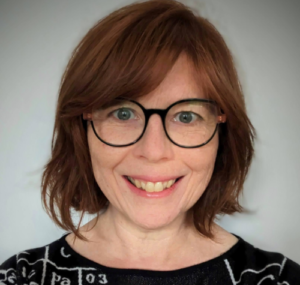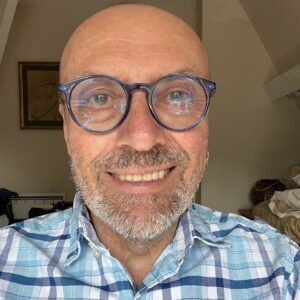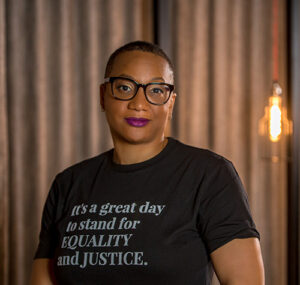
Dr. Jean-Paul Addie is an Associate Professor in the Urban Studies Institute at Georgia State University, USA. He is a critical urban geographer working on issues of urban and regional governance, urban political economy, and socio-spatial theory, with a specific focus on the politics of infrastructure. His research and teaching address questions of access, mobility, and social justice, and explore topics including university-led urban development, transportation governance, city-regionalism, urban restructuring, and neoliberal urban policy. Dr. Addie’s work has been published in international journals including Urban Geography, Regional Studies, International Journal of Urban and Regional Research, Environment and Planning A, Journal of Urban Affairs, and CITY. He is co-editor (with Michael Glass and Jen Nelles) of Infrastructural Times: Temporality and the Making of Global Urban Worlds (Bristol University Press, 2024). He holds a Ph.D in Geography from York University, Canada and can be found on Twitter @JP_Addie.

Hélène Bélanger is Professor in the Departement of Urban and Tourism Studies at the University of Quebec in Montreal since 2006. Hélène has directed or is directing more than ten research projects whose subjects cover housing issues, more specifically gentrification, social mix, tenure insecurity, the meaning of home and the appropriation of public spaces in residential neighbourhoods. Since 2017, she is a member of the Collective of research and action on habitat (CRACH) a collective founded by scholars, practitioners and housing advocacy groups whose mission is to develop research to support the right to housing, social justice and the rights of tenants. She is currently leading a CRACH team whose project focuses on the residential precariousness of senior tenants. Over the years, her work led to more than forty publications in three languages (French, English and Spanish), which includes more than ten peer-reviewed articles, the co-edition of a book and two peer-reviewed journal special issues. She has also presented fifty papers and had organized 17 workshops, colloquia, or panels during international conferences. UAA member since 2007, she is also co-coordinator of the working group Residential Environments and People of the European Network for Housing Research (ENHR).

Jonathan S. Davies is founding Director of the Centre for Urban Research on Austerity and Professor of Critical Policy Studies at De Montfort University, Leicester, UK. He researches urban governance and public policy, recently leading a major global study of urban austerity, resistance and transformation after the global economic crisis. Resulting monographs, Between Realism and Revolt: Governing Cities in the Crisis of Neoliberal Globalism (2021) and New Developments in Urban Governance: Rethinking Collaboration in the Age of Austerity (2022), are published by Bristol University Press. Davies has been a UAA member since 2002, previously serving on the UAA Governing Board (2014-20) and currently as a member of the Publications Committee and Associate Editor of the Journal of Urban Affairs.

Tia Sherèe Gaynor, PhD, is an associate professor in the leadership and management area at the Humphrey School of Public Affairs at the University of Minnesota. She is a community-engaged scholar immersed in equity and inclusion. Her work explores the intersection of social justice, local government, and identity. More specifically, focusing on the ways identity-based narratives, negative social constructions, and decision-making lead to inequitable outcomes for people of color, those who identify as LGBTQIA, and people at the intersections of these and other identities. Her most recent work sits at the nexus of mindfulness, intergroup dialogue, and racial healing to explore avenues toward equity and justice.
Previously, Gaynor was at the University of Cincinnati, serving as a faculty member in the political science department, founding director of the Center for Truth, Racial Healing & Transformation, and Taft Professor of Social Justice. She holds a PhD and MPA from the School of Public Affairs and Administration at Rutgers University – Newark. She received her BA in psychology from Rutgers University – New Brunswick. Additionally, she holds a Diversity Management Certification from the University of Houston’s International Institute for Diversity.

Shenjing He is Professor of Urban Studies and Head of the Department of Urban Planning and Design, Faculty of Architecture, The University of Hong Kong (HKU). Shenjing’s research interests focus on urban redevelopment/gentrification, urban governance, rural-urban integration, low-income housing, housing price mechanism, and health cities. Shenjing was conferred the award of Fellow of the Academy of Social Sciences (UK) in 2021 and she serves as co-Editor in Chief for Area Development Policy since 2023, and editor for Urban Studies since 2012, and sits on the editorial board of several urban and geographical journals. She is the founding director of the Social Infrastructure for Equity and Wellbeing (SIEW) Lab and the executive deputy director of the Urban Systems Institute at HKU. Her current research projects include climate gentrification, housing and wellbeing, housing and education inequalities, neighbourhood governance, cross border healthcare utilization, and rural revitalization.

Clara Irazábal is the Director of the Urban Studies and Planning Program in the School of Architecture, Planning and Preservation at the University of Maryland, College Park. In her research and teaching, she explores the interactions of culture, politics, and placemaking, and their impact on community development and socio-spatial justice in Latin American cities and minoritized communities in the US.
Irazábal was a professor at the University of Missouri, Kansas City; Columbia University in New York City; and the University of Southern California, Los Angeles. She lectures at Universitat Internacional de Catalunya, Barcelona. She got her PhD from the University of California at Berkeley. Irazábal has published in English, Spanish, Portuguese, and Italian, and has worked as consultant, researcher, and/or professor in countries of the Americas, Europe, and Asia. She has taught planning and interdisciplinary studios in Brazil, Colombia, Chile, and Trinidad and Tobago; and nationally in minoritized and immigrant/refugee communities. The “right to the city” framework features prominently in her teaching and research.